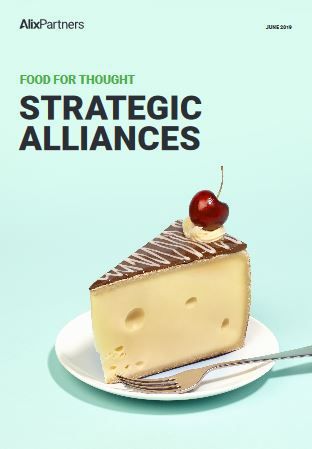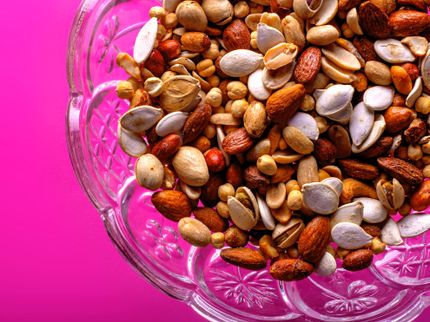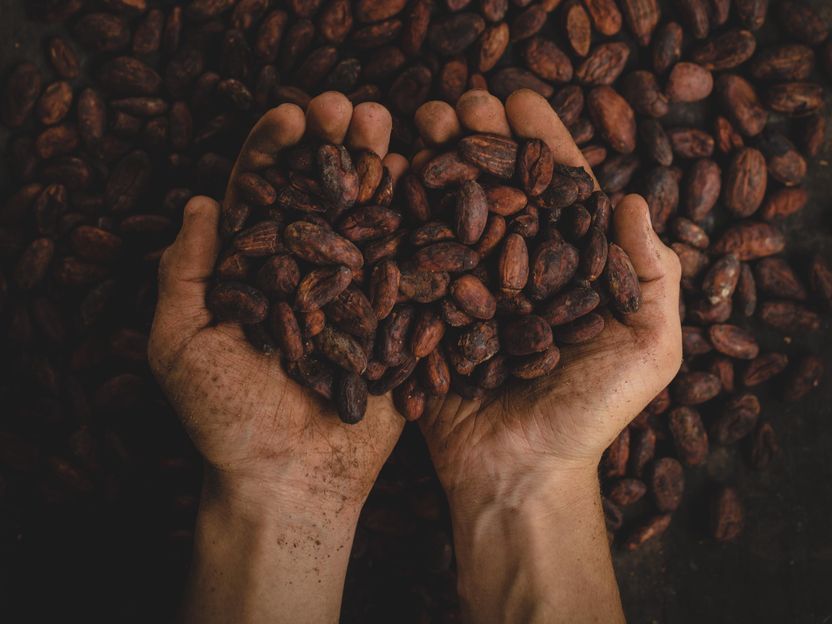Food manufacturers increasingly form alliances to counter pressure on innovation and margins
AlixPartners study on the food industry
n the food industry, fundamental changes are emerging in the strategies of companies. The background to this is that large companies around the world are facing increased pressure to innovate and further declining margins. In order to successfully meet these challenges, Swiss food manufacturers are likely to forge more strategic alliances with partner companies - sometimes also direct competitors - in the future instead of relying on classic mergers & acquisitions (M&A) transactions. In recent years, Swiss companies have occasionally entered into partnerships with other food manufacturers, which is now likely to increase further. These are the results of a study by the global management consultancy AlixPartners.

AlixPartners
Beatrix Morath, Managing Director and Country Head Switzerland at AlixPartners, says: "Many food producers are aware that they need an external solution to meet the challenges they face. Takeovers can be a complex, expensive undertaking with a certain risk of failure. Many companies therefore see strategic alliances as a sensible way of meeting these industry challenges and reducing risks. Some examples from recent years show that this option is increasingly used in Europe."
With a volume of 1 trillion euros, the food sector is the largest manufacturing sector in the European Union. In Switzerland, too, the industry is among the leaders.
Pressure to innovate: Demand for health and wellness foods on the rise, foodtech's competing
Demand from customers in the food sector is changing dramatically. According to Euromonitor, annual retail sales of health and wellness foods in Europe will grow to more than 147 billion euros by 2020. Many innovations in this segment are driven by so-called foodtechs (start-ups in the food sector), which can pick up trends quickly and purposefully and therefore represent competition for established companies. The growing importance of foodtechs is also reflected in rising financing volumes: over the past four years, 4.2 billion euros have been invested in European foodtechs, accounting for 16% of global investments over the same period.
In general, the digital transformation has a considerable influence on the development of the industry: In addition to the foodtechs, new apps, online services or manufacturers of convenience products are rolling over the value chain. For established companies, the low share of investment in research and development (R&D) proves to be a disadvantage in competition with start-ups: according to the OECD, only 0.2% of turnover is invested in R&D by food companies on average in the EU.
Another problem is that the margins of food producers have been under pressure for some time: Consumer demand for cheap food is increasing and production costs are rising. In addition, tariffs, trade barriers and other events of global importance, such as Brexit, are inhibiting. At the same time, growth in Western markets is slowing down. This is also having an impact on the retail trade, which is in a state of upheaval not least due to increasing competition from the online trade.
Alliances offer many advantages over traditional M&As
The study shows that food manufacturers have several options for action against the background of these developments, two of which, according to the experts at AlixPartners, emerge from the current economic environment: Either the producers take over entire companies that complement their own portfolio. Or they forge strategic alliances in the areas of purchasing, manufacturing, delivery and sales & marketing.
Cornelia Bruehwiler, consumer goods and retail expert at AlixPartners in Switzerland, says: "Alliances have other advantages besides lower costs and lower risks. This enables them to accelerate product innovations - especially in direct comparison to the expansion of their own research and development activities. A faster reaction to market trends is thus possible."
In addition, Bruehwiler points out that alliances enable the entry into markets not yet covered. An alliance could be used as a kind of test balloon. If a venture into a secondary market proves successful, an investment or acquisition can then be considered. Alliances also make it possible to expand one's own brand or develop it into an umbrella brand.
Case study: Barry Callebaut forms alliances
Switzerland has also seen strategic alliances along the entire value chain over the past four years. One example is the chocolate producer Barry Callebaut, which has entered into a partnership with the British pastry manufacturer Burton's Biscuit Company to purchase more than 12,000 tonnes of chocolate and chocolate mixes per year. Under the terms of the agreement, Barry Callebaut will take over Burton's chocolate production and thus expand its capacity in the UK. Barry Callebaut has also entered into a partnership with Unilever to supply chocolate for Magnum ice cream, enabling the company to enter into long-term contracts with cocoa farmers. Barry Callebaut's cooperation with the Dutch chocolate producer Tony´s Chocolonely to supply cocoa beans, which are produced in a sustainable manner by cooperatives in Côte d'Ivoire, is similar.
In view of the study results, Beatrix Morath sums up as follows: "Alliances in the food sector do not yet have the same status as traditional takeovers. However, we are convinced that we will see even more of these partnerships with Swiss food companies in the future. The advantages are obvious - and especially against the background of the gloomy economy, the manufacturing companies are likely to want to avoid risks."
The complete study is linked to the right of the article.
Note: This article has been translated using a computer system without human intervention. LUMITOS offers these automatic translations to present a wider range of current news. Since this article has been translated with automatic translation, it is possible that it contains errors in vocabulary, syntax or grammar. The original article in German can be found here.
































































